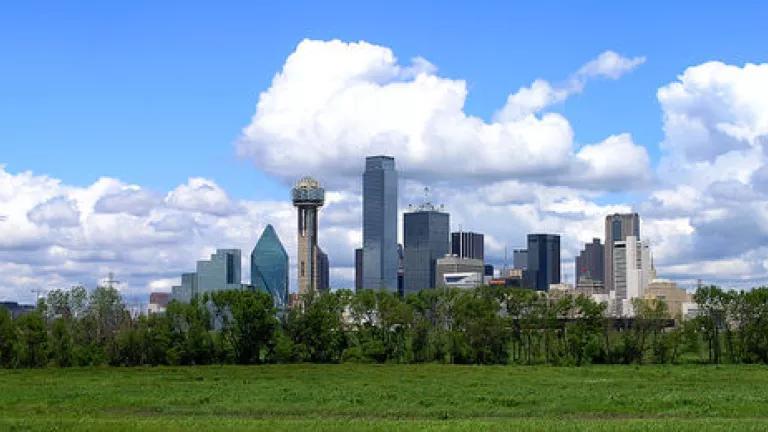Don't Mess With Dallas: City Passes One of the Strictest Gas Drilling Ordinances in Texas

With a 9-6 vote last week to pass a local law requiring a minimum of 1,500 feet between gas wells and homes, the Dallas City Council has made clear who controls the fracking fate of Texas’ third largest city: the City of Dallas itself.
Photo via drumguy8800/Wikimedia Commons
Unlike states that have seen the relatively recent and precipitous growth of oil and gas drilling due to fracking (e.g., Ohio or West Virginia), Texas is no stranger to drilling. Perhaps surprisingly for some, the state is also no stranger to strong local control over drilling. Texas communities have long had the authority to pass laws restricting both the manner and location of oil and gas drilling operations, including the ability to pass complete bans on the process.
Compare this with the situation in Ohio—where industry is currently arguing that the state law allowing oil and gas wells as close as 100 to 150 feet of "occupied dwellings" eliminates all local authority to increase setbacks or determine where wells are placed—and one wonders, why does strong local control, like that enjoyed by municipalities in the nation's top oil and gas producing state, scare industry in states that aren’t top producers?
The question is, perhaps, an unfair one because there are those even in Texas who fear local zoning control over drilling and its effect on the future expansion of fracking operations in that state. Indeed, some have called Dallas' move to expand its mandatory setback from 300 to 1,500 feet a de facto ban on drilling because there just aren't many places in Dallas that are 1,500 from a home. While this may be true, the ordinance is not a ban. As with the city's earlier zoning law, no oil or gas well can be built before the driller obtains a special use permit from the city, and under the new law, if the city decides to grant a special use permit, it also has the ability to lower the 1,500 foot setback by a two thirds vote.
In other words, the new Dallas ordinance gives the city robust authority to look at well applications on a case by case basis, and decide what drilling activity, if any, will be permitted. Even if the new ordinance did amount to a ban in practice, it begs the question, aren't there some places (like a major metropolitan area where there are hundreds of thousands of people living and working and raising families) where drilling is just inappropriate? Maybe the real problem with fracking in Dallas isn’t strong local control, but rather the inherent environmental and public health risks associated with the fracking process itself.
Whether or not big oil and gas companies can make a convincing case for drilling in Dallas, there is no convincing case for those companies to have more control over where a major industrial activity occurs within city limits than the democratically elected representatives of that city. Because the same is true for all cities and towns across the country, NRDC’s Community Fracking Defense Project fights for the rights of all municipalities to control their fracking future and have the ability to say to big drilling companies, “don’t mess with us.”

